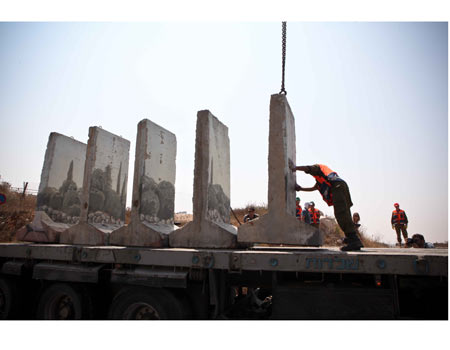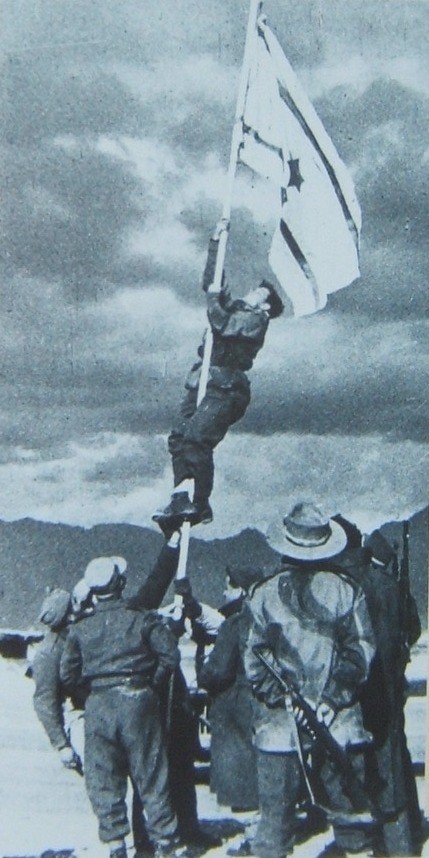Hospitality – A Family Project.
Rav Alex Israel
Our Parsha opens with the image of Avraham Avinu sitting at the entrance to his tent. Almost immediately, a small group of wayfarers enter the scene and we witness an account of Avraham’s overwhelming hospitality to them. Avraham Avinu, recovering from surgery runs to draw guests into his home. The words “run”, “quick” are repeated over and over as Avraham hurries to attend to the strangers' every need. He personally supervises the kitchens; he acts as a waiter serving their food. He also accompanies them on their way, not letting them leave without an escort.
The Halakha sees Avraham as a paradigm of Chessed. It uses Avraham as a Halakhic role model:
"Charity and Giving are traits of the Tzaddik, of the offspring of Avraham Avinu" (Mishna Torah, Laws of Gifts to Poor 10:1)
“The reward of escorting a visitor from one’s home is the greatest of all rewards for hospitality. This is a law set in place by Avraham Avinu and the charitable ways that he made his lifestyle. He would give wayfarers food and drink and would escort them on their way. “ (Mishne Torah. Hilchot Evel . 14:2)
These values are seen to override even the concerns of God Himself! The Halacha continues (based on Gemara Shabbat 127a):
“Hospitality is of greater worth than receiving the Divine Presence itself. This we learn from Genesis 18:2: ‘And he looked up and saw three men (and ran towards them)’.” (ibid – and see Rashi's reading of the opening passuk)
THE HOSPITALITY OF LOT
In another scene of the Parsha, we witness Lot's hospitality.
"1 And the two angels arrived in Sodom in the evening as Lot was sitting in the gate of Sodom. When Lot saw them, he rose to greet them; and bowed low with his face to the ground. 2 He said: 'Please, my lords, turn, I pray you, to your servant's house, and spend the night, and wash your feet, and you shall rise up early, and go on your way.' And they said: 'No; we shall spend the night in the square.' 3 And he urged them strongly; and they turned his way, and entered his house; and he prepared a feast for them, baking unleavened bread, and they ate." (19:1-3)
This account of Lot's hospitality mirrors that of Avraham. He sees them, greets them, bows down to them imploring them to join him at his home, and he offers them a place to sleep the night. Like Avraham, he prepares a meal especially for them. Clearly Lot has learnt a considerable amount from Avraham.
DIFFERENCES
But there is one striking difference. Avraham involves his entire family:
"6 And Abraham hastened into the tent unto Sarah, and said: 'Make ready quickly three measures of fine meal, knead it, and make cakes.' 7 And Abraham ran unto the herd, and fetched a calf tender and good, and gave it unto the boy (Rashi – Yishmael) …" (18:6-7)
Avraham involves his wife, his son. This is not his own personal project; it is a family agenda. This family agenda becomes our NATIONAL legacy:
“... for I have singled him (Avraham) out that he may instruct his children ... to keep the way of the Lord by doing what is just (Tzedaka) and right (Mishpat) ...” (18:16-20)
Avraham is not simply a man of personal ethical standards.
He teaches his children to do that which is “just and right.” He establishes a family TRADITION of Chesed that needs instruction, teaching, cultivation. It doesn't just come naturally, it must be taught, inculcated not merely by example, but rather by practice and training.
LOT
And what of Lot's family? We do not hear of his daughters waiting upon the visitors at the table. Even his wife is absent as he entertains the two angelic messengers in his home. Lot has to bake the bread himself, it was Lot who personally prepared the food. His family was uninvolved.
Maybe it is not surprising then, that sons-in-law desire to remain in Sedom, his wife, so distressed at the destruction of her hometown, looks back and is turned into lifeless unproductive salt. And what of Lot's two daughters? They end up in an act of incest with their father. Lot's family do not join the community of Chessed, of that which is Just and Right, Tzedek and Mishpat. They live for themselves. Despite the example of their father, the value of Chessed failed to pass over the generational divide.
LESSONS FOR OURSELVES
And for us, who are part of the legacy of Avraham Avinu, we should appreciate the central role of Chessed. And that the only way to pass on this vital tradition is by transforming our entire home into a welcoming place, a tent of Abraham, involving our entire family in the project of Hachnassat Orchim.
In Pirkei Avot (1:5), Rabbi Yose ben Yochanan talks about our "home" being open. Chessed is not simply a trait adopted by individuals; it must permeate families, homes and communities. Then we can ensure that our children too will cherish their legacy and continue it always.
Shabbat Shalom.
 In a current exhibition at the British Musum, a papyrus from the "Book of the Dead" is exhibited (link). It shows a ceremony of the "weighing of the heart," from Thebes, and dated at around 1275 BC, not distant from the period of the Exodus from Egypt.
In a current exhibition at the British Musum, a papyrus from the "Book of the Dead" is exhibited (link). It shows a ceremony of the "weighing of the heart," from Thebes, and dated at around 1275 BC, not distant from the period of the Exodus from Egypt.










